“Arise! Awake! and stop not until the goal is reached.”
Swami Vivekananda
When I answered a phone call from David Christopher on a blustery winter Adirondack morning, I expected to hear that we needed to adjust our interview scheduled for that same evening. Perhaps the team decided to shift the time for a team dinner to allow for some more bonding with teammates. Perhaps the team decided more time was needed to explore the various Olympic legacy sites throughout Lake Placid after completing practice runs on the bobsled track. Instead, Christopher passed along news he had just received: due to an oncoming monster of a snowstorm geared to hit the Adirondacks in less than forty-eight hours, Christopher and his adaptive bobsled team would be competing in just a handful of hours, two full days ahead of their originally scheduled slot in the 2022 Empire State Winter Games. The team would hit the road to Albany immediately following their competition, and he would call me for our interview once they were settled in before flying out early the following morning.
The shift in schedule not only forced Christopher and his teammates to suddenly get their bodies ready for a peak performance effort, but they also had to mentally shake off the sudden change in schedule and get their minds focused on the task at hand. The psychological element of athletic performance is often discussed far less than the physical aspect but is of equal importance, and an athlete’s ability to adapt to unexpected circumstances often separates the good from the great. That said, Christopher embodies greatness every single day.
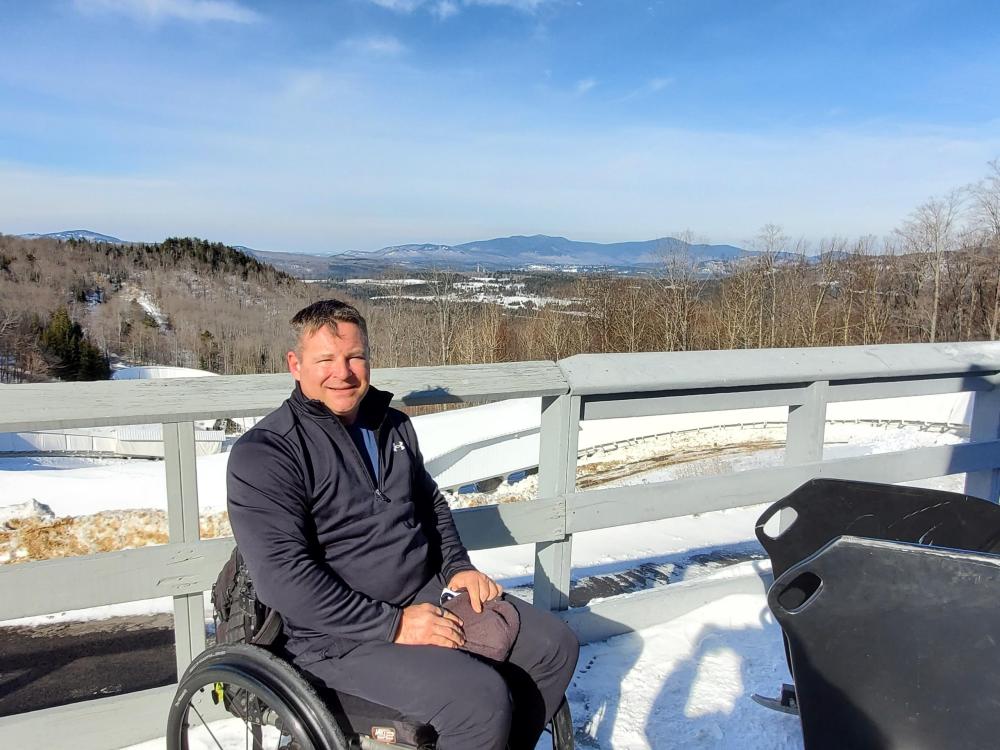
Adapt. Arise. Rinse. Repeat.
Christopher, his teammates, and countless athletes around the world are “adaptive athletes,” individuals whose circumstances have impacted their body in such a way which impedes their ability to perform in a sport as that sport was originally designed. The adaptations made to any combination of equipment, facility, rules, or point systems provides the opportunity for these athletes to participate in spite of what many would be quick to label as a physical “limitation.” But, for individuals such as Christopher, they do not view themselves as “limited.” Rather, they are individuals who are willing and able to face whatever life throws at them and find a way to, quite literally, keep moving forward.
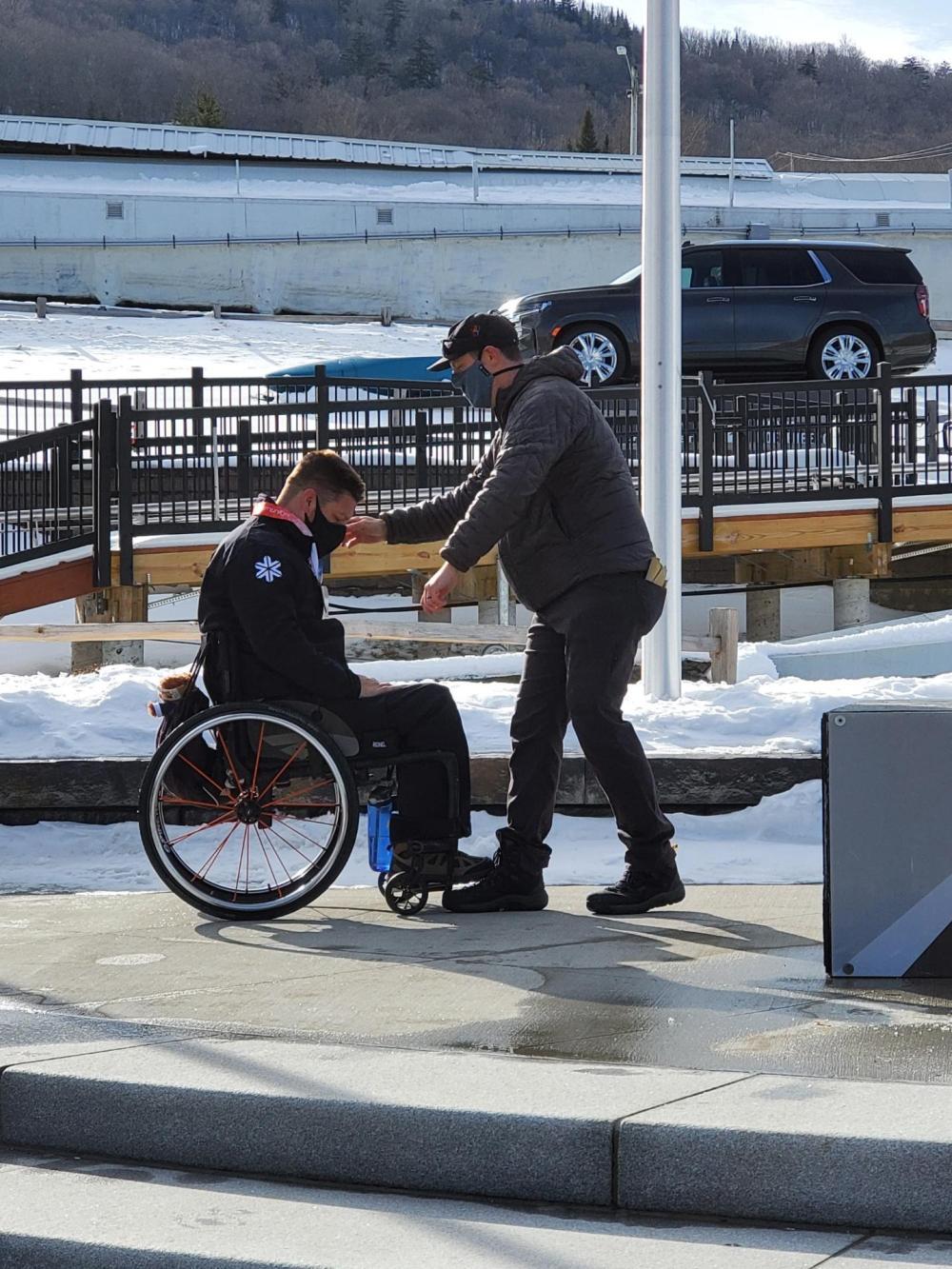
Ever the logophile, I found myself wondering why — of all the words in the English language — “adaptive” was ultimately the phrase chosen to represent such a level of physical, mental, and spiritual resilience of these athletes. When I looked up the definition, I quickly found my answer. The Oxford definition of “adapt” is straightforward enough: “to become adjusted to new conditions.” Makes sense. But the Merriam-Webster dictionary definition of “adaptive” is what I feel truly captures what it means to be an adaptive athlete: “arising as a result of adaptation.”
Adapt. Arise. Rinse. Repeat. Again and again and again.
A bobsledder arises from tragedy
The sport of bobsledding is very much a sport of movement, getting from point A to point B with all sorts of twists and turns along the way. It is a sport that perfectly captures Christopher as an individual. Just his resume of residences throughout his life shows that he was born to be on the move: Nashville. Northern Alabama. Tallahasse. Chicago. Missouri. California.
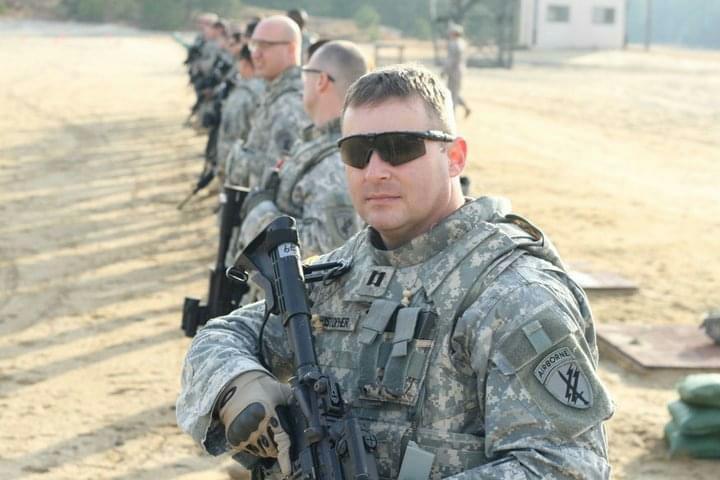
He was a civilian police officer for ten years. He was a US Army Captain with the 414th Civil Affairs Battalion, having been mobilized several times after 9/11. But eight years ago, at the age of forty-two, the front tire of his motorcycle hit a pothole while he was out for a ride in California. His body hit a guardrail at over thirty miles per hour, resulting in paralysis of Christopher’s body from the chest down and a constant burning sensation in his lower body that Christopher says “feels like having a blowtorch on my butt all the time.”
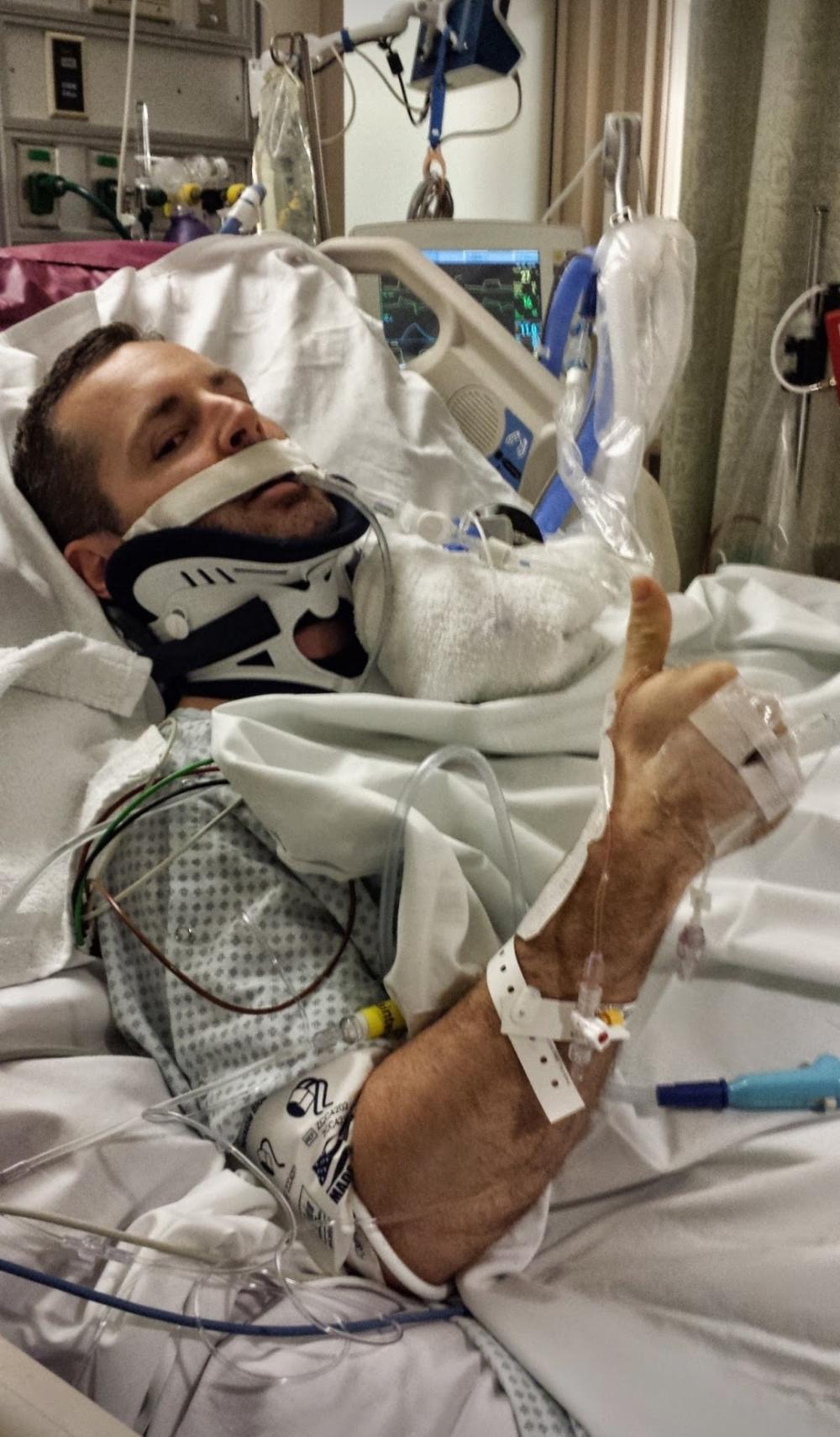
“But yeah, that accident…that was it,” Christopher said. “It’s been eight years, and I still find myself trying to learn how to be paralyzed. I will say I became a spiritual person after my accident. Not so much religious, but spiritual…I’m very in tune with myself. We are all on a journey here. Other people have their journey, and my journey is mine. Every day is a challenge — not in a bad way, but in an exciting way, wondering what will come that day. I’ve come to a place where I am just excited to be here.”
But how does a former police officer and veteran survive a debilitating accident, only to find himself hurling his body down a chute of ice in a sled at speeds around 60 mph? The same way most people decide to do something many would consider to be insane: he saw his friends doing it and thought it looked like fun.
“You know, you get challenged, and you try to keep going and try to do some different things in life to keep you going,” Christopher said. “I’m not one to sit back and not stay active. One day, I saw a couple of my friends doing this sport through Facebook and just thought, ‘Huh. Wow. That’d be pretty neat.” The rest is history.
“I talked to my friends and they got me connected with their coach. From there, we just started making things happen. Before I knew it, I was coming out to Lake Placid for the first camp.”
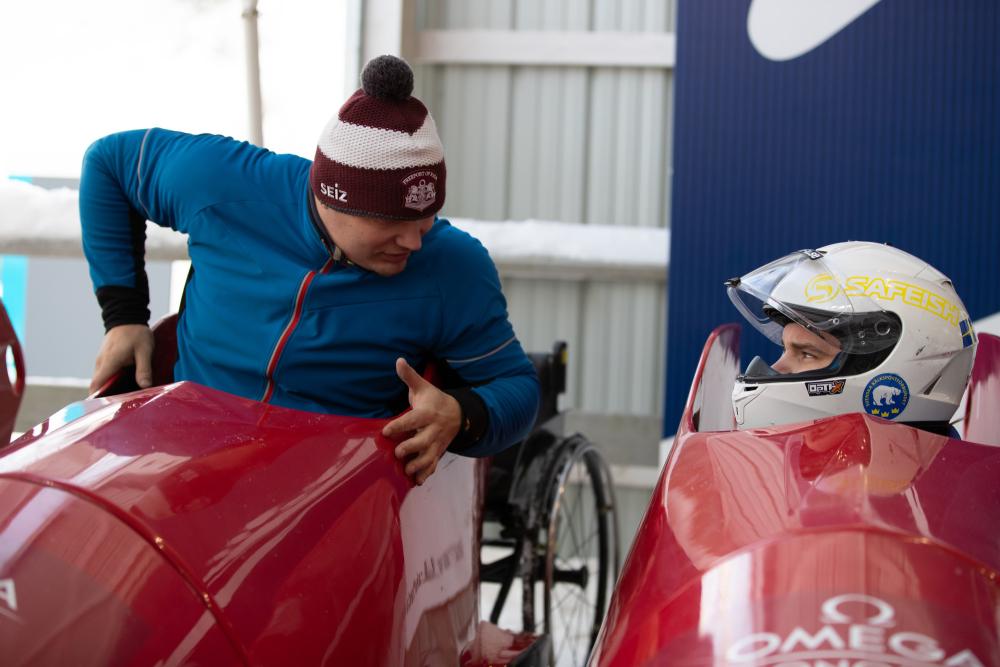
History revisited and history in the making
Christopher shared that Lake Placid, NY and Park City, Utah are home to the only two tracks where adaptive bobsledders can compete. However, Lake Placid is the one location which allows these athletes to train as well. It is also the more demanding track of the two, something that does not come as a surprise as Lake Placid was host for both the 1932 Olympic Winter Games and 1980 Olympic Winter Games.
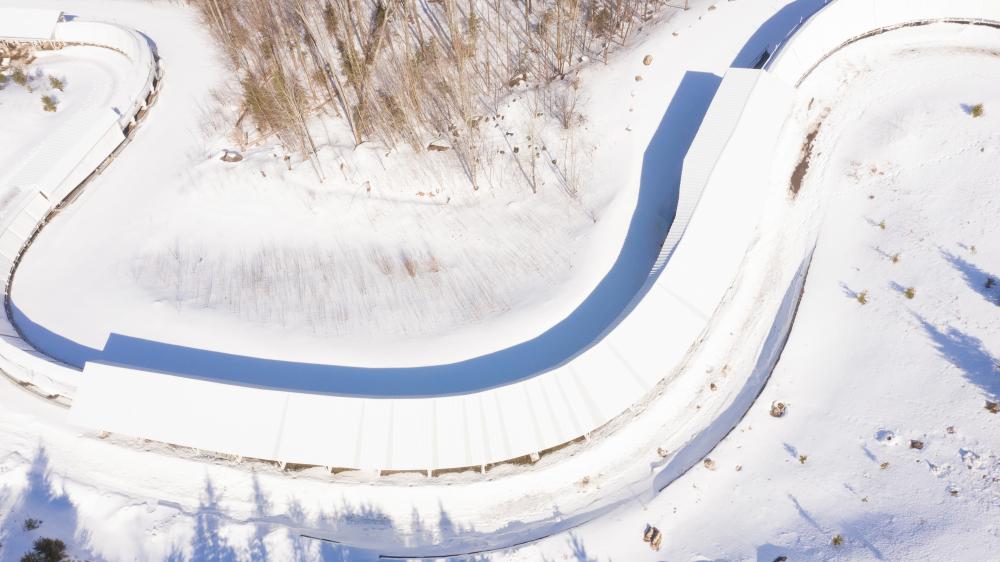
“It is pretty incredible to be able to be on that track and know you are experiencing Olympic history,” Christopher said. He and fellow adaptive bobsledders are hoping to make history of their own. Adaptive bobsled is not currently recognized as an official Olympic sport simply because it hasn’t grown enough throughout the world, but that is slowly changing.
“The track [in Lake Placid] is willing to work with us and willing to promote the event,” said Christopher. “We are lucky to have a program here and have the equipment. Lake Placid will be hosting the next World Cups here. Lake Placid is also highlighting the ‘push category’ championships for amputees below the knee who are able to push the sled and jump in. It isn’t a competition in the world cup yet, but it is getting highlighted. We get to show everyone in the world what we are doing here in Lake Placid, and my hope is that the sport keeps growing.”
Experience comes one run at a time
Although he is already competing in the one-manned bobsled event, known as the monobob, Christopher does not consider himself a seasoned athlete in the sport just yet. “I’ve only done about a total of thirty runs,” he said. “It’s exciting, demanding, and definitely not for the faint of heart. I’ve had a few crashes and, well, a few things that have happened and they are not fun. You just come out of it and go. It can be wild. But, you gotta get up and keep going.”
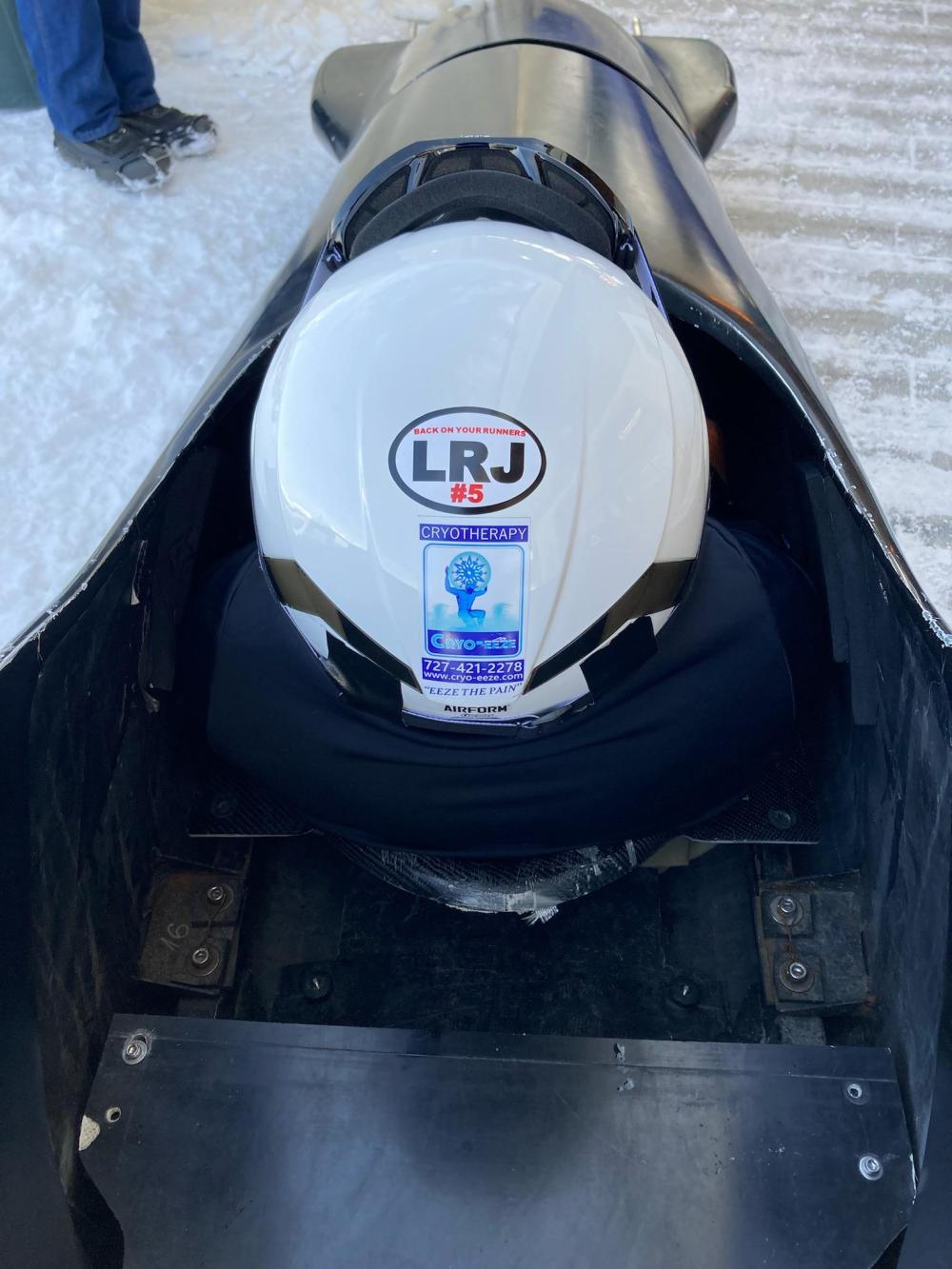
The sport itself is not only difficult, but it is also difficult to train for. There are not many opportunities to use the track as the adaptive bobsled team has to compete for training time with all other teams who come to Lake Placid to train on the iconic course. But when the opportunity arises, Christopher tries to take full advantage.
“You basically do track walks through the ice and try to memorize the course the best you can. It’s just mentally learning ‘Turn here. Give there. Pull there.’ Once you get on the sled, they basically give you a little push and say good luck,” he said with a laugh.
Most technical growth in the sport comes from critiquing runs recorded on video tape with his coaches. “The coaches have been great — just very consistent,” he said. “They are great about saying I need to do this or that, or this is why that happened. They are very specific and detailed. They really are great. But at the end of the day, it’s about getting out there and doing it.” But it isn’t that simple in a high consequence sport like bobsledding, where even the slightest mistake can cause a significant injury.
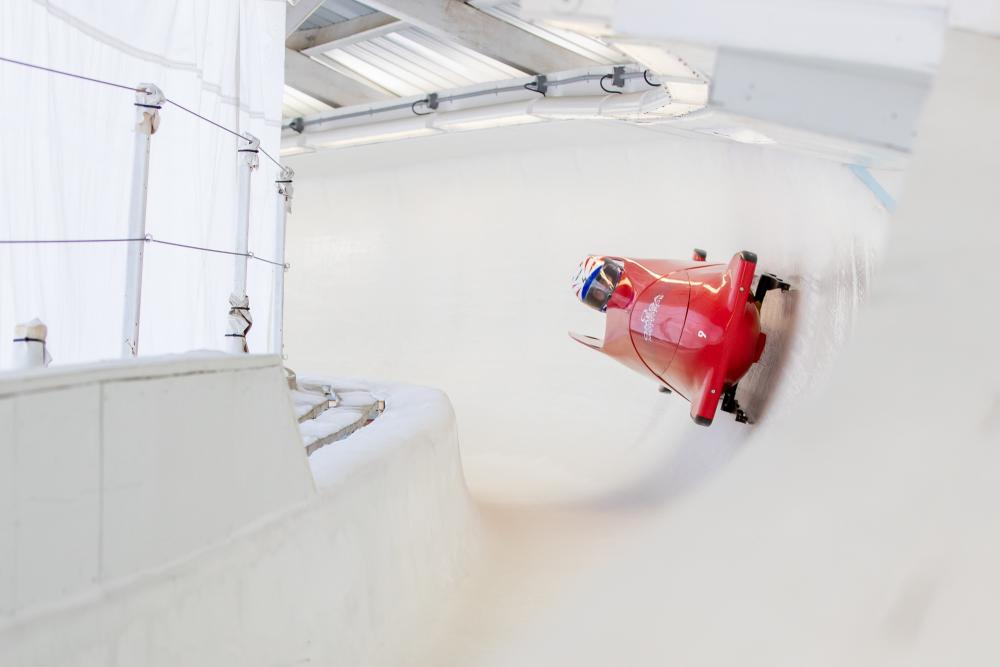
“I think one of the most challenging parts of the sport is the fear of it…just not letting the fear take over and concentrating” Christopher said. “It’s like, ‘Okay, here comes turn ten…I’m at this certain point, so I need to do this.’ Things like that. But not letting the fear take over — that absolutely transfers over into my life, especially with my overall confidence as a person. Being in a wheelchair in the last eight years…people just look at you differently. There are a lot of challenges, especially in relationships just with people in general. Some people are overly helpful, and they don’t mean to be but they are, and then there are people who just ignore you completely like you don’t exist. This sport has helped me to not let those kinds of things get to me.
Christopher is starting to feel things start to click for him, and he looks forward to seeing how he progresses. But, his true goal extends well beyond the track.
Defying the odds
Unlike many athletes in his sport, Christopher does not focus on keeping his weight down in order to go faster on the sled. His typical go-to option to lower weight specifically focuses on keeping a low muscle mass in his lower body, for a very important reason: he is planning to use his legs to walk again, and he needs all the muscle he can get to do it.
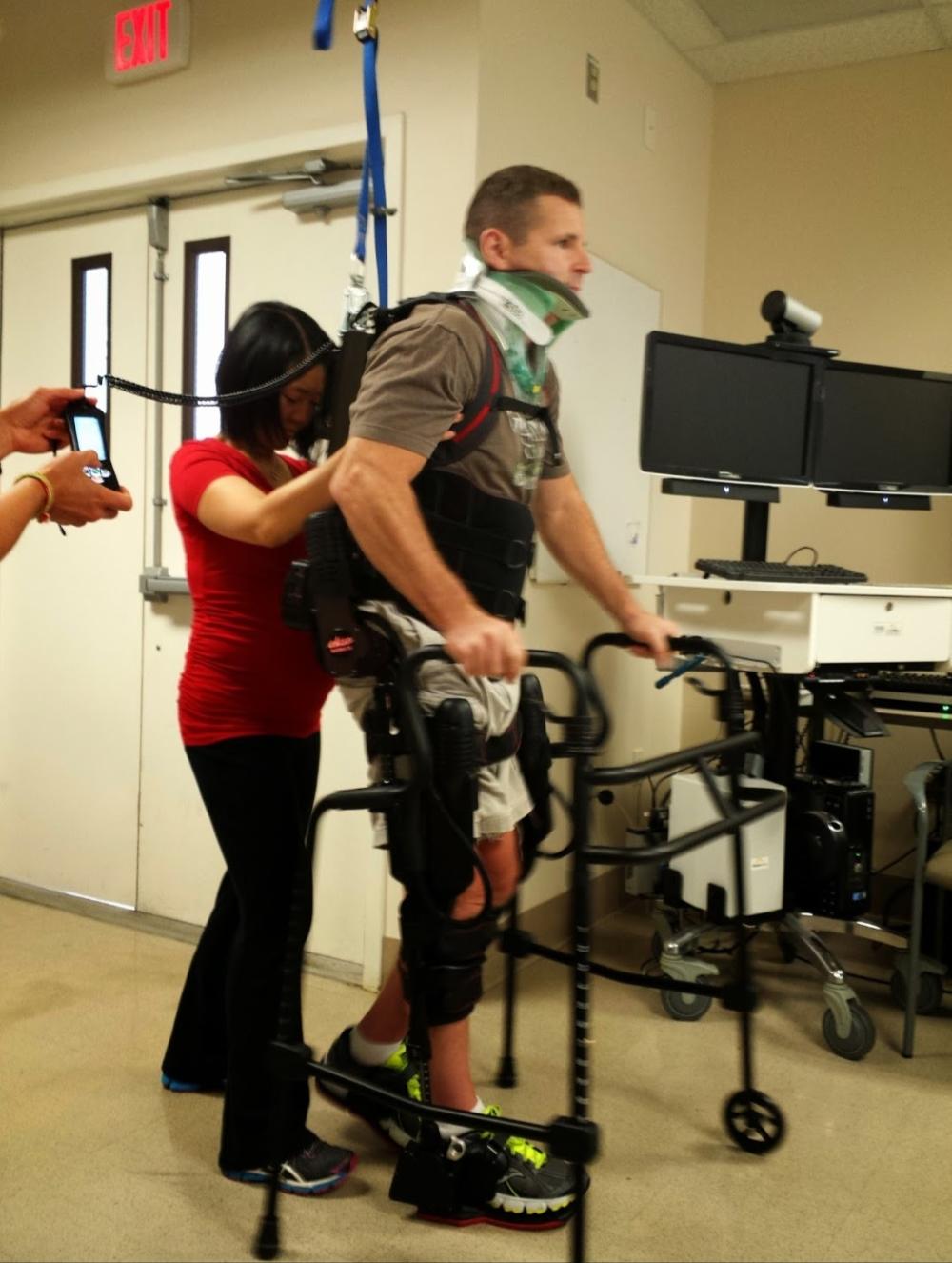
Sound impossible? Christopher’s doctors thought so, but he is already proving them wrong.
“I wasn’t supposed to walk again — my doctors said so. But I didn’t want to give up. And in 2019, I had my first moment of regaining some function in my legs. Fast forward to today, and I’m able to leg press forty pounds. Forty pounds. I wasn’t supposed to be able to do that, and I’m doing it. So will I walk again? Maybe I will, maybe I won’t, but I’m working towards it. I’m not going to let go of that dream or give up hope.”
Adapt. Arise. Rinse. Repeat. Again and again and again.
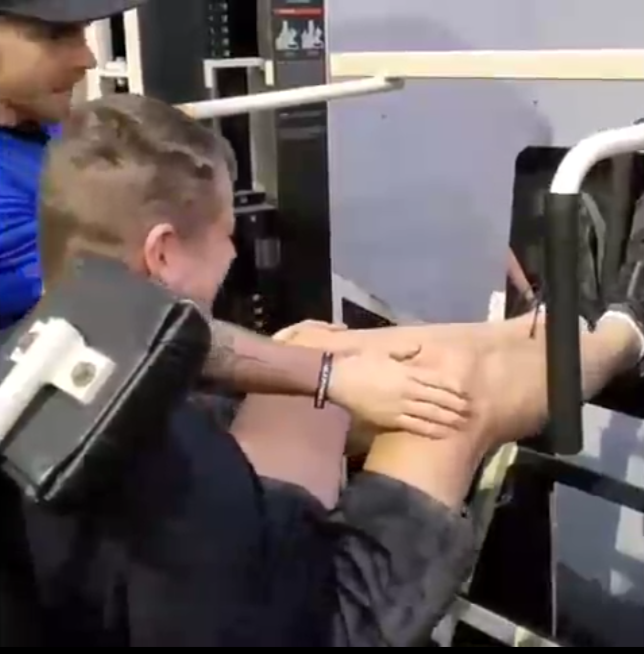
When asked to pick his favorite element about Lake Placid, his answer was the feel of the community when you are here. "I really appreciate the small town aspect of the area. It just has a homey feel to it." Christopher looks forward to his next visit to Lake Placid this spring and enjoying the things he didn't get to do during this last visit: visiting the ski jumps, visiting more of the Olympic Legacy sites around town, and enjoying the shops along Main Street. Want a taste of the action yourself? Get yourself a ticket to the Bobsled Experience at Mt. Van Hoevenberg. You don't want to miss it!












